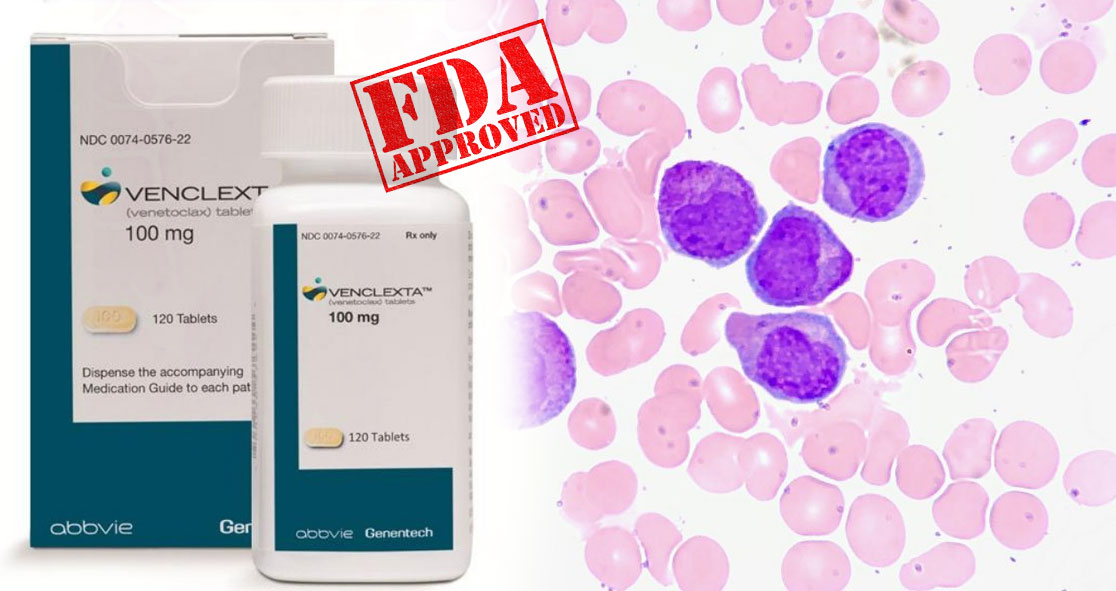On Friday, the U.S. Food and Drug Administration (FDA) granted full approval to Venclexta (venetoclax) in combination with azacitidine, decitabine, or low-dose cytarabine to treat newly diagnosed acute myeloid leukemia (AML) in patients aged 75 and above.
The FDA’s full approval applies to adults who are not eligible for intensive induction chemotherapy due to comorbidities.
The drug was initially granted accelerated approval from the FDA in November 2018.
Dr. Lee Greenberger, Chief Scientific Officer of The Leukemia & Lymphoma Society, said, “For far too long, people with AML had very few treatment options, aside from very intense chemotherapy. [This] news continues the progress of bringing more treatment options to patients with this devastating disease.”
The drug’s efficacy was confirmed in two randomized, double-blind, placebo-controlled trials in patients with AML.
The results showed significantly longer overall survival (OS) in the patients who received venetoclax and azacitidine, while most patients achieved complete remission.
The patients who received venetoclax and azacitidine experienced side effects such as febrile neutropenia, pneumonia, sepsis, and hemorrhage.
Another trail compared venetoclax and low-dose cytarabine with placebo and low-dose cytarabine. The trial failed to meet its primary endpoint of significantly improved OS with venetoclax and low-dose cytarabine. However, the rate of complete remission was higher in the venetoclax group.
The patients who received venetoclax and low-dose cytarabine experienced nausea. The FDA says doctors should report all serious adverse events suspected to be associated with the use of venetoclax and other drugs.





















